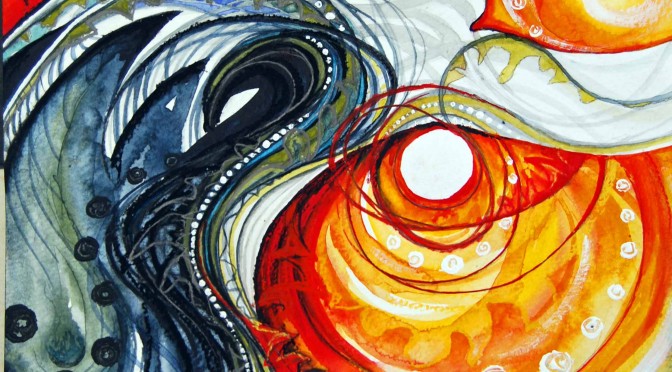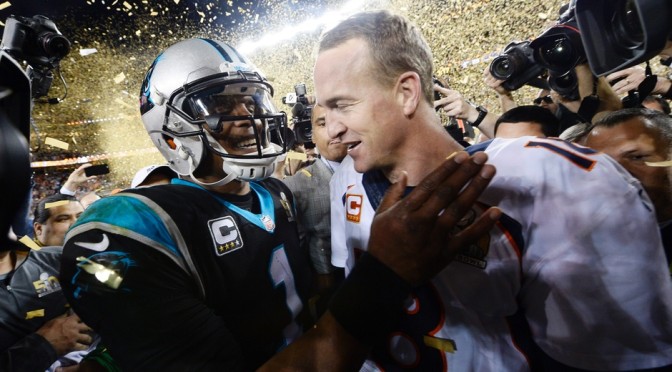**sermon art: Jesus Washes the Disciples Feet by Luke Allsbrook, oil on canvas (2018)
Caitlin Trussell with Augustana Lutheran Church on March 10, 2024
Ugh, you know, the thing I don’t like about Jesus is that he was always telling his followers to get their revenge, to trash talk, to really stick it to people. He was super mean all the time. He didn’t like weddings. And little children really got under his skin. I should probably stop there on the slight chance that anyone thinks I’m serious. Obviously, Jesus was none of those things. The stories we have about Jesus and the things he said reveal an incredible human. Non-Christians say how great life would be if Christians actually lived like Jesus lived. Many people who aren’t Christians try to live their lives as Jesus lived. Just as those of us who say we follow Jesus try to follow his example.
When we welcome new members into Lutheran churches like this one, we call it affirmation of baptism. There are promises we make as part of the affirmation of baptism when we join a church. The last few weeks we’ve covered a few of our promises: to live among God’s faithful people, to hear the word of God and share in the Lord’s supper, and to proclaim God in Christ through word and deed. Today, we’re highlighting our promise, “to serve all people, following the example of Jesus.” Our Bible readings today help us remember a very important part of this promise. Jesus is Jesus and we are not, even if we are called to follow his example.
Verse 17 of the John reading takes that one step further. If Jesus didn’t come into the world to condemn the world, then why would any Jesus follower think it’s their job to condemn people? I shared at Evening Prayer last Wednesday that I was raised in two denominations that painted the scariest portrait of God you could imagine, and that God sent Jesus to police the planet for evil deeds of any size. When I left home, I left Jesus behind. Why take him to the party if he was just going to frown away? And then I married a Lutheran Christian. We baptized our babies and made the promises to them that you hear me ask parents or baptized adults to make at our baptismal font. What changed? God didn’t. I did.
John 3:16 and 17 were written as a continuous thought in the original Greek.[1] “For God so loved the world that he gave his only Son, so that everyone who believes in him may not perish but may have eternal life. Indeed, God did not send the Son into the world to condemn the world, but in order that the world might be saved through him.”
God’s love for the world revealed in Jesus is good news because it reveals God’s goodness and light. Jesus was not sent to condemn the world but to save it. Salvation in John’s gospel is focused on life. Eternal life today because God is eternal, and God abides with us right now as we abide with God right now. How would it change Jesus’ message for you to think about salvation that way rather than a dividing line at death? Why would a God whose love for the world, who draws all people to God, suddenly turn against people when they die? Have we projected our own fear about dying onto God?
These questions are relevant to today’s reading because people have used verse 16 over the centuries to blast people beyond God’s love. It’s what happens when verse 16 is separated from verse 17. It’s what happens when belief is set as the highest power above even God’s grace, as if the power of God’s grace could be limited by our beliefs and doubts which is, of course, ludicrous. In case we think too highly of our own power, hear the reminder from Ephesians – “For by grace you have been saved through faith, this is not your own doing; it is the gift of God, not the result of works, so that no one may boast.” Faith as a gift from God, by definition, means that belief cannot be a work. We don’t dredge belief and faith up in ourselves. That’s a real mind bender, isn’t it?
We haven’t focused on the Hebrew Bible’s stories of the Old Testament much over the last few weeks. Those readings in worship have emphasized the covenants that God makes to God’s people. Each covenant God made is evidence that the promise to some was for the benefit of many. From God’s covenant with Abraham would come blessing for the whole world.[2] From God’s covenant with the Hebrews led by Moses, would come life-giving commandments that brought peace among neighbors.[3] And from God’s covenant with the whole world through Jesus, would come a love so powerful that it transforms hearts and minds.[4]
Which brings us back to the baptismal promise we make “to serve all people, following the example of Jesus.” We don’t make this promise to serve in order to grow the church or to win souls for God or to prove how cool our theology is. We serve following the example of Jesus because as the Ephesians reading tell us, “…we are what he has made us, created in Christ Jesus for good works, which God prepared beforehand to be our way of life.”
I’d like you think for a minute about the people who have served you like you imagine Jesus served people in the Bible stories. Call to mind names and faces and what happened. It may be someone who prayed for you.[5] It may be someone who healed you like a chiropractor or physician or counselor.[6] It may be someone who didn’t let a past harm define you.[7] It may be someone who has more grace for your flaws than you ever could for yourself and doesn’t condemn you.[8] It may be someone who stayed up with you late at night, talking when you needed it most.[9] It may be someone who fed you when you had no way to pay them back.[10] As I prepared this sermon, so many faces and names swam through my mind.
Most recently, it was my friend, Lee McNeil. Lee and I worked on human dignity policies and legislation with Together Colorado especially related to race and justice. I called her Sister Lee as did many others who knew her. It was an honorary title of respect for a beloved and wise elder. As the great granddaughter of an enslaved person, and the triple-great granddaughter of someone who owned African people, our friendship evolved over the ten years of working together. A few weeks ago, we were asked to write an opinion piece together supporting the Racial Equity Study bill moving through the Colorado legislature that will increase understanding of the generational impact of law and policy on Black Coloradans. Sister Lee and I wrote it in my office here at the church. First we reminisced over people we knew because we hadn’t talked in over a year. Then we kept right on talking while I typed and read out loud and we talked more and edited the letter together.
At the end of our conversation that day, I told her how grateful I am for our friendship and for her grace while I learned things I could never have learned without her loving instruction and willingness to just talk. We hugged. She told me she loved me and I told her back. There were a flurry of emails back and forth with final edits and I submitted our letter to the paper. A week later I found out that Lee died suddenly. A long life well lived. I was stunned and heartbroken and incredibly grateful to know her and unbelievably grateful to have seen her right before she died. Sister Lee was kind and thoughtful and fierce. She loved Jesus and she served people following the example of Jesus.
I’ve watched many of you love each other similarly. Oh sure, there are disappointments, disagreements, and sometimes frayed nerves. We are human after all. But we’re reminded time and again how much God loves us and we’re reminded that Jesus commanded us to love each other and then showed us how to do it. The list of things that Jesus did for people is long. If there’s not someone coming to mind at the moment who has been Jesus to you, take this question out of worship with you today. Who has served you as Jesus served and, in some small way, helped you understand just how much God must love you? Because that’s what our service to other people does, it reminds them that God loves them too. This reminder is no small thing in a world that is in desperately in need of Jesus’ transforming love.
Thanks be to God and amen.
_____________________________________________
[1] Joy J. Moore, Professor of Biblical Preaching, Luther Seminary, St. Paul, MN. Sermon Brainwave podcast for Bible readings on Sunday, March 10, 2024. www.workingpreacher.org/podcasts/952-fourth-sunday-in-lent-mar-10-2024
[2] Genesis 12:1-5 The Call of Abram
[3] Exodus 20:1-17 The Ten Commandments
[4] Acts 9:1-22 The Conversation of Saul/Paul
[5] John 17:1-26 Jesus’ Prays for his disciples.
[6] See all of Jesus’ healing stories.
[7] John 8:1-11 Woman caught in adultery.
[8] Luke 22:54-62 Peter denies Jesus.
[9] John 3:1-21 Nicodemus visits Jesus by night.
[10] Mark 6:30-44

![Who has been Jesus for you? John 3:14-21 [OR Would Someone Please Put John 3:17 on the Poster, Too?]](http://caitlintrussell.org/wp-content/uploads/2024/03/Luke-Allsbrook-Jesus-Washes-the-Disciples-Feet.-2018-oil-on-canvas--672x372.jpg)

![Cousins in the Faith: Jews and Christians [OR Be Salty & Shiny (Not That Kind of Salty[1])] Isaiah 58:1-9a, 1 Corinthians 2:1-12, and Matthew 5:13-20](http://caitlintrussell.org/wp-content/uploads/2023/02/Cantor-Zachary-Kutner.Holocaust-Remembrance-Day.Kavod-Senior-Life.1-27-2023-672x372.jpg)

![Brown Bear, Brown Bear, What Do You See? [OR Hope Flickering in the Darkness] John 3:14-21 and Numbers 21:4-9](http://caitlintrussell.org/wp-content/uploads/2021/03/brown-bear-brown-bear-what-do-you-see-672x372.jpg)
![Pandemic Brain [OR An Honest Accounting of Binding Anxiety to Unhelpful Things] Exodus 32:1-14, Philippians 4:1-8, and Matthew 22:1-14](http://caitlintrussell.org/wp-content/uploads/2020/10/The-Golden-Calf-by-John-Bradford-oil-on-canvas-2001-9feetx14feet-672x372.jpg)
![Expectations, Envy, and Complaint [OR That’s God and That’s Good] Matthew 20:1-16 and Exodus 16:2-15](http://caitlintrussell.org/wp-content/uploads/2020/09/Manna-in-the-wilderness.Paul-Oman-Fine-Art-640x372.jpg)
![The Next Right Thing [OR Pharaoh’s Fury, Meddling Midwives, and Moses’ Birth] Exodus 1:8-2:10 and Matthew 16:13-20](http://caitlintrussell.org/wp-content/uploads/2020/08/wading-in-the-water-from-adam-moses-birth.jpg)
![Into the Mystic [OR Christian Mystics On The Love of God] Matthew 17:1-9](http://caitlintrussell.org/wp-content/uploads/2017/02/Transfiguration.Armando-Alemdar.Ara_.2004.GNU-Free-Documentation-License-672x372.jpg)
